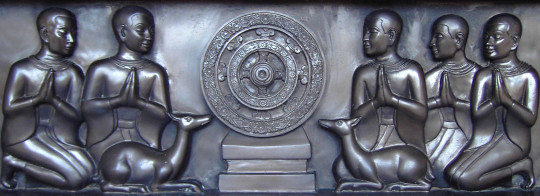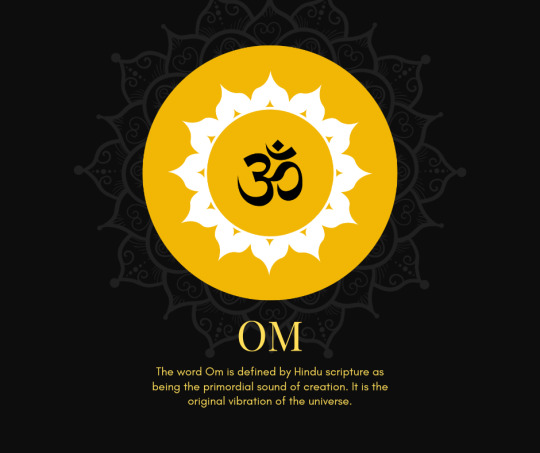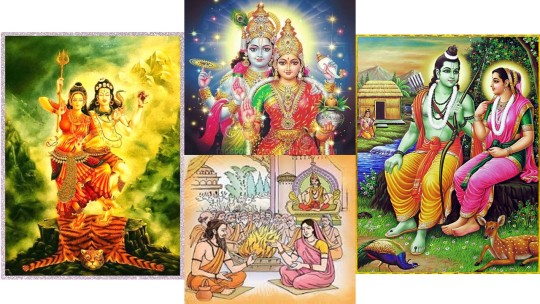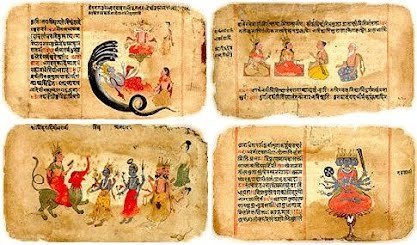#dharma spirituality philosophy
Text
On Xenia, Missionary Work, and Living in a Broken World
I'm still getting used to writing these blogs, but I had something nagging at me from earlier today, I hope this essay does it justice. Long post ahead!
A friend of mine, not a close friend but still a friend, works at a sit-down restaurant and has shared difficulties with life and the service industry with me. Earlier, they shared that a Christian group visited their restaurant, ordered notably expensive food including steaks, and were not generally the best customers, but they left a $100 tip to my friend at the end of their stay.
This bill, however, turned out to be fake. On closer examination, it was a concealed note made to look like a $100 bill advertising a local Christian group, informing them that "Jesus is worth more than this bill!" followed by an ad for their congregation. Setting aside that the bill was literally worthless, as it was not worth any money, this... upset me. But let's peel back a little.
A common theme among religions is that the gods show up in the poorest of society. The concept of Xenia in Hellenic Polytheist religious belief and Ancient Greek society is built around the idea that Zeus and any other deity could appear as a poor beggar asking to sleep under your roof in the rain, or at least that they might be watching.
For those who may not see things so literally, it is still fundamentally a religious matter that humans built the world and make it what it is, even if we all still dance to the invisible tune of the Theoi and the Fates, and that we have some kind of a responsibility to build a better world from those who walked before us.
All of that is pretty common among religions, with only the details changing. Buddha lived as an ascetic with his only shelter being a tree where he had his awakening, the ancient Israelis were penniless slaves who were led by Moses who was essentially an exiled refugee, Jesus was a peasant carpenter, etc. The idea that the divine comes to our without money at their lowest is not new.
There is, however, a very toxic mentality that I have mostly observed among preaching and missionary Christian groups. It is that, because Jesus lived without money, that he is the wealth that matters. The idea being that faith in Jesus is the only thing that matters, as someone without him is damned, and the more souls you save by making them realize his supposed trueness makes you a better person by making them realize this, and possibly earns you better brownies in Heaven.
This is, however, disregarding virtually every other cultural experience in exchange for having this world view. Well-adjusted, comfortable and safe communities who worship a different god must obviously be proselytized against in this view of the world, for even the happy and comfortable cannot truly be happy for they do not know the son of your sun god if you seek conversion rates above all else in the mortal world. We have all seen this in effect.
There is a grim cowardice to this entire world view. It is a fundamental unwillingness to see the perspectives of others, to have empathy, and move your mind out of your own head. In this world view, no one who isn't you can be happy and good, all must be bent to your shape to match the perfection that you were so obviously built in.
I was raised Mormon, and this cowardice has been weaponized to an enormous degree by building entire cultural cornerstones by preaching and conversion and proselytization. Those who do not surrender vast sums of money in order to travel to strange places without friends and family purely so they can bother other people with this 'truth' that they do not want... well, to not do it makes you less than a person to the Church, unworthy of the paradise they promise you.
I in no way wish to state that sharing religion is bad. Talking to people that you know, sharing your world view, talking about what you believe, telling them about the beauty of the divine that you have witnessed, all of these I feel are an innate good. But if you see the world narrower than a pinhole, if you believe that every humans who is born, toils and dies under our sun must believe in Jesus and God in order to have a shred of value and thus seek to force it on them by any means necessary, you have perverted the entire arrangement.
Dan Olson did a wonderful documentary on Flat Earth and qAnon in which he stated that to Flat Earthers, they are not simply in ignorance of geography, but that the simple denial of truth is a weapon, a tool, in which they seek to build the world in their image by denial of facts through a force of will to build a metaphorical flat earth in which they are right and their enemies are silent. When you do not seek to enlighten, to share, to learn, and instead seek to use your will, words and resources in order to hammer anyone you ever meet into a familiar shape, to build the good little Christian paradise on Earth that is so clearly strangling those who do not see it as a paradise, you have built a horror.
And it is into this environment that the final horrors take shape. The denial of refugee aid by powerful religious organizations without conversion, the refusal of helping others without getting something in return, the clawing tendrils of rigid enforcement of religion and culture that forces people into your group for fear of leaving it, the refugees and poorest people in my city who were forcefully converted by missionaries in return for food and shelter is the final result of such a narrow world view, in viewing every human as needing to conform to you and your way. This is homousian as the horrors that have ravaged the planet for centuries, that has devastated native cultures, killed generations of queer people, and built the worst of the world.
It is in all of this that the introduction to this essay began. A Hellenic Polytheist, working a thankless job, bringing fine steaks to those who taunted them with fake money while promising that their note had the only thing of value.
What if I told you that my friend was moving away from an abusive lover or parent and desperately needed money for shelter? If they were trying to scrounge together money to pay for insulin without insurance? What if I told you they were paying for an unexpected funeral and were facing the reality of being unable to bury a loved one? What if I told you they had cancer and needed every penny to get surgery and chemotherapy?
Thankfully, they do not have any of these things to my knowledge, and were simply annoyed. But to dangle a religious truth that they are not interested in, teasing them with the money that, to the knowledge of these Christians, may have saved their lives, while taunting them that your carpenter god would cure these things for fealty like a feudal lord, is a vile and small-minded idea. That this person was likely not the sole executor of this evil and likely was simply promised by higher-ups that they were doing good, that they meant well and genuinely thought they were helping, does not decrease the horror of the world and mindset that would create this circumstance. Because next time it will be someone with cancer you yank hope away from.
I hope, dear reader, that you can extract my meaning on the purpose of Xenia, and good deeds from this, and see a small piece of the dark horror that small minds and narrow eyes can build. When Zeus appears at your doorstep dressed as a ascetic beggar, the fact that this beggar may not be Hellenic does not matter. That he may not be your color, or that he may not be healthy, or that he may be different, is not an excuse not to be kind, to think outside of your own experience, and to embrace those who need us the most. Because your $5 and your kindness and understanding to your waiter or barista or your uber driver is far, far more valuable than a pamphlet and a condemnation.
I'd like to send you off with a small story I like about the Buddha. This story is neither historical nor truly about the Buddha, but it is an enlightening tale containing a deep religious truth told through fiction, not unlike our Greek mythology:
While the Buddha meditated beneath his Bodhi tree, searching for truth and enlightenment, he peered beyond the mortal realm and saw a thief in hell who had repented and begged forgiveness. The Buddha, seeing that the man wanted to change, to come back to Samsara and to fight to be a better man, lowered a spider's web into hell for him to climb.
The Thief graciously began climbing up towards the Buddha. However, the other denizens of hell began climbing up after him, and he feared that the delicate spider's web would break and take him back to hell, so he began kicking them off. The spider's web was stronger than the finest steel and could have taken all of them, but his kicking broke it like it was thread.
Be kind, love each other, and always seek a better world.
-Lady Nikki
#hellenic polytheism#dodekatheism#hellenic pagan#pagan#hellenism#zeus deity#xenia#buddhism#dharma#spirituality#philosophy#anti capitalism#anti missionary
42 notes
·
View notes
Text
All Teachings Point Toward You
The only measure of value for teachings given in a classroom is in the way they are utilized outside the classroom in real life.
Without those teachings becoming a lived experience they remain a mental masturbation, an interesting packet of academia at best.
The same can be said for spiritual teachings. They are not given so that they can be studied, analyzed, and learned.
You actualize the value in a spiritual teaching when it is examined within your lived experience and then integrated as some form of adjustment leading to your own confirmation of the teaching.
This is also why on a superficial level certain spiritual teachings can appear contradictory. They aren’t inherent truths; they are hints and tips and catalysts.
The emphasis isn’t on the teachings objectively but on what they reveal for you subjectively.
Such is the long-lost art of contemplation. Our English language equates contemplation with "thinking about something." The reduction of contemplation to a thought-based activity entirely misses the point.
Wikipedia offers a lovely definition: "In a religious context, the practice of contemplation seeks a direct awareness of the divine which transcends the intellect, often in accordance with prayer or meditation."
So a teaching doesn't inherently matter if you do not chew on it, experiment with it, marinate in it, and test it. This means to say none of it matters if you do not practice, whether that be prayer, meditation, or other spiritual technologies. It is never about whether you agree with or believe in a teaching.
If I were to quote you an Eckhart Tolle teaching, "Gratitude is the foundation of all abundance," it wouldn't matter if you don't contemplate it. The quote sounds pretty and makes enough sense. Yet without sustained practice of gratitude and examination of how it impacts your sense of abundance or scarcity, you don't benefit from the wisdom given.
"Contemplation is the art of holding a word or a phrase patiently in the silence and stillness of awareness until it begins to disclose deeper and deeper meanings and understandings. Contemplation has the power to transcend beyond (not regress back from) the limits of analytical thought and logic, and open consciousness up to an order of wisdom and Truth that can only be described as revelation."
-- Adyashanti
Keep this in mind with anything you encounter here on my blog or elsewhere. Otherwise you may collect many pretty words all the while remaining bereft of lucid illumination.
LY
#dharma#buddhism#zen#yoga#enlightenment#spirituality#philosophy#teaching#meditation#mindfulness#awareness#consciousness
96 notes
·
View notes
Photo

The Quest for Buddhism (87)
Middle Way - the fundamental of the Buddha's teachings
The term "middle" in the Middle Way refers not to the middle of between the two things, but to moving away from the two things and transcending contradictory conflicts, while the "way" refers to the practice and method.
The unbiased, middle and correct path that is free from the two views of refusal and regularity, or existence and nothingness.
The Middle Way (Skt: Madhyama -pratipada, Pali: Majjhima-paṭipada) is a common Buddhist term used to refer to one of the major aspects of the Dhamma, that is, the teaching of the Buddha. It was given by the Buddha during his first sermon to the five bhikkhus (first turning of the wheel) at Sarnath. It refers specifically to the Noble Eightfold Path (Ref).
The phrasing (with "patipada"), refers to a spiritual practice that steers clear of both extreme asceticism and sensual indulgence. This spiritual path is defined as the noble eightfold path that leads to awakening.
The term Middle Way is widely valued in Buddhism, and its meaning can be shallow or deep, but all sects agree that the core of their dogma is expressed in terms of the Middle Way.

仏教の探求 (87)
中道〜ブッダの教えの基本
中道の〈中〉は、両極端な2つのものの中間ではなく、2つのものから離れて矛盾対立を超えることを意味し、〈道〉は実践・方法を指す。
断・常の二見、あるいは有・無の二辺を離れた不偏にして中正なる道のこと。
中道 (ちゅうどう、梵: マディヤヤマー・プラティパッド、巴: マッジマー・パティパダー)は、ダンマ、すなわちブッダの教えの大きな側面を指す共通の仏教用語である。ブッダが鹿野苑 (ろくやおん、梵: サールナート) において五比丘に対して初めての説法を行った際に(初転法輪)、ブッダによって与えられたものである。具体的には八正道(参照)を指す。
この表現 (“パティパダ”) は、極端な禁欲と官能的な耽溺の両方を避ける精神的な修行を指す。この精神的な道は、覚醒につながる八正道と定義されている。
中道の語は仏教において広く重んじられているため、その意味には浅深があるが、各宗がその教理の核心を中道の語で表す点は一致する。
#the middle way#buddha#buddha dharma#first turning of the wheel#sarnath#5 bhikkhus#noble eightfold path#spiritual path#patipada#buddhism#art#nature#philosophy#dogma#deer
87 notes
·
View notes
Text
Dharma= natural truth/factual way of things
It is said, “A single dharma barely penetrated and the myriad dharmas are penetrated.” .
#dharma#Buddhist#Buddhism#Buddha#dodgeball#quotes#inspirational#meditation#truth#philosophy#eastern#zen#literature#spirituality#history#writing#enlightenment#books#poem#poems#history of Buddhism
8 notes
·
View notes
Text
Religion 101: Understanding the 10 Types of Sins in Hindu Philosophy
In Hindu philosophy, the concept of sins, known as “paap,” plays a significant role in shaping one’s moral and ethical conduct. According to the Smritis, there are ten types of sins categorized into three groups. Image source: Merchant Circle
Continue reading Religion 101: Understanding the 10 Types of Sins in Hindu Philosophy

View On WordPress
#Dharma#Ethical#Hindu philosophy#History#India#Karma#Knowledge#Life#Morality#Prayers#Religion#Ritual#Sins#Spiritual
0 notes
Text
Sasi Krishnasamy's teachings are rooted in the idea that true happiness and fulfilment come from within. He believes that by developing a deep sense of self-awareness and mindfulness, individuals can overcome any challenge and live a more fulfilling life.
#philosophy#palani#non profit organisation#ayngaran#festival#ஐங்கரன் அறக்கட்டளை#non religious#spiritual guru#sanatana dharma
0 notes
Text
Discovering the Essence: Exploring the 4 Sacred Values of Sanatan Dharma #writeapageaday @Blogchatter
Discovering the Essence: Exploring the 4 Sacred Values of Sanatan Dharma #writeapageaday @Blogchatter #SanatanDharma #Hinduism #Spirituality #Values #Dharma #Ahimsa #Seva #Satya #Philosophy #Misconceptions #Truth #Righteousness #NonViolence #Selfless
4 Values I Believe in: Exploring Sanatan Dharma
Sanatan Dharma, often referred to as Hinduism, is one of the oldest living religions in the world, with a rich tapestry of beliefs, practices, and philosophies. Rooted in the eternal principles of righteousness and cosmic order, Sanatan Dharma provides a comprehensive framework for leading a fulfilling and meaningful life. Within this vast…

View On WordPress
#Ahimsa#dharma#Hinduism#Misconceptions#Non-violence#Philosophy#Righteousness#Sanatan Dharma#Satya#Selfless Service#seva#Spirituality#truth#values
0 notes
Text
आपकी हर समस्या का जवाब यहाँ है। 🌐🚀 हर समस्या का विशेष समाधान, 16 जनवरी से! _____ जानने के लिए वीडियो पर क्लिक करें।
🌿 Learn the secrets of Inner Peace in a Hectic World through Bhagavad Gita 📖 and 🧘 Develop a clear and focused mind, honing your decision-making skills 🎯.
Register now :: Bhagavad Gita Diploma Course 2024 (razorpay.com)
For more details contact :- 9873854135
#BhagavadGita#Spirituality#WisdomTeachings#AncientWisdom#Philosophy#Hinduism#DivineWisdom#SelfDiscovery#Mindfulness#YogaPhilosophy#LifeLessons#VedicWisdom#InnerPeace#SpiritualJourney#Enlightenment#UniversalTeachings#GitaQuotes#SacredTexts#Dharma#KarmaYoga
0 notes
Text
There’s no grand story to tell.
Above or beyond one daily breaths,
beyond sleeping in,
and showing up on time,
beyond a drink too many,
and some years too few.
Life is all broken hearts,
and grins broken through
when we let it be,
and,
even when we don’t.
What choice do we have?
When we run,
when we writhe and rebel,
it all fits,
all of it,
in the grand story’s arch.
Predictable as it all may be,
still we cry and gasp,
sigh and joyously exclaim-
the whole time,
our eyes firmly glued to the screen.
What else is there to do?
Accord upon accord,
there’s no option,
and no escape-
therein lies our freedom,
when it is we know.
~Sunyananda

#zen#buddhism#buddha#buddhist#dharma#enlightenment#sangha#awakening#nirvana#spirituality#poem#poet#poetry#life#philosophy
1 note
·
View note
Text
The Legacy of Lord Rama: How He Shaped Hinduism
Lord Rama, the seventh incarnation of Lord Vishnu, is one of the most revered and beloved deities in Hinduism. He is known for his unwavering devotion to dharma and his embodiment of righteousness, virtue, and compassion. His story, as depicted in the Ramayana, has had a profound impact on Hindu culture and society, shaping the beliefs, practices, and values of millions of people over the…

View On WordPress
#compassion#Dharma#Diwali#Dussehra#ethics#Festival of Lights#Hinduism#Lord Rama#morality#Philosophy#Ram Navami#Ramayana#righteousness#service#spirituality#virtue
1 note
·
View note
Text
#Sanatan Dharma#journey#time#tradition#Hinduism#philosophy#spirituality#Vedic#scriptures#Vedas#Upanishads#Bhagavad Gita#Puranas#karma#dharma#moksha#yoga#meditation#mantras#rituals#Hindu deities#Hindu festivals#Diwali#Holi#Navaratri#Ram Navami#Krishna Janmashtami#Guru Purnima#Mahashivratri#Hanuman Jayanti.
0 notes
Text
The Sanatana Dharma Fandom aka... "Hinduism"

From allowing for the creation of new deities to holding space for contradictory philosophies, what we commonly refer to as Hinduism is probably more accurately described as a spiritual fandom.
What makes Hinduism resemble a fandom is that there is both a canonical authority that sets forth a worldview and there are the modifications and additions to that worldview created by local environments, teachers, lineages, and families. I will explain later how a great number of changes can be made without ever disturbing the underlying premise of Hindu philosophy.
Like most spiritual/religious traditions, Hinduism concerns itself with how to live well and in harmony with the nature of creation. It also has a bonus typically only seen in eastern traditions: enlightenment.
Let's begin with a very general examination of the traditional Hindu approach to human life.
Dharma, Artha, Kama, and Moksha
There are four themes of human life within the fandom: Dharma, Artha, Kama, and Moksha. These themes support a way of life as well as stages of life.
Dharma has many translations and meanings but I would summarize it as being "a sense of honor with respect to your place in this world." Self-discovery and growth are implicit in one's dharma.
Artha is the pursuit of wealth and prosperity for the purpose of livelihood. It entails the activities and resources that allow for harmonious existence within this physical world. It is because of artha that we as humans can survive while also having time and space for higher pursuits, such as art and spirituality.
Kama is pleasure. Rings a bell, right? Oooh yeah the Kama Sutra. I like the Wikipedia definition of Kama: "the aesthetic enjoyment of life, affection, or love, with or without sexual connotations." Everyone, knowingly or unknowingly, is seeking to enjoy themselves and their lives. Kama recognizes and acknowledges this, allowing pleasure a place within the human way of life.
And lastly there is moksha. Perhaps one of the most defining features of all, moksha means liberation. Put simply, all of creation is divinity and all beings are divine. However, for the vast majority of us, this is not a lived experience. Moksha essentially means the realization and embodiment of divinity, as divinity. In other words, enlightenment.
If you put it all together then you get a healthy, well-balanced human life.
As children, we should enjoy life through play, art, and friendship. That is kama and it helps to emphasize why human life is worth supporting and sustaining. And it is important to maintain touch with kama and the playfulness of humanness throughout our lives. Some of us will begin to discover our place, our dharma, in childhood.
Next comes artha, learning how to actually contribute to that support and sustenance of human life. Higher education, getting a job, whatever. Again, one's dharma comes into play as the path through which we seek to do so. Artha acknowledges the reality of living in a society, that survival is not something taken for granted but rather earned. It is not about greed or building vast sums of wealth as its own ends.
And lastly, at any point in life, some people may feel an urge to understand what all of this actually is, what essence resides in/as reality. Revelation of reality is moksha.
While Hinduism is a sea of varying cosmologies, philosophical systems, spiritual lineages, and deities, these four themes are commonly found either explicitly or implicitly within the average citizen's lifestyle.
The Sanatana Dharma
The term "Hinduism" is actually an exonym, a non-native label placed upon it. Now having explained a little about Hinduism, its endonym--the native label for itself--may make a bit more sense: Sanatana Dharma.
You could basically translate it similarly to the Mandalorian phrase "this is the way."
Sanatana means 'eternal' and dharma means 'truth' or 'way.' Dharma is a term that has meaning deeper than in the context of those four themes described above. Dharma is truth and cosmic law. Quantum physics is dharma, sure, but in spiritual circles you will also hear dharma used to describe the truths and practices that reveal moksha, enlightenment.
Another excellent Wikipedia definition for Sanatana Dharma: "the natural and eternal way to live."
In other words, just as everyone knowingly or unknowingly is seeking enjoyment as kama, so too is everyone knowingly or unknowingly seeking to realize the reality of their inner divinity. Because that is the ultimate and lasting enjoyment beyond all enjoyments.
Sanatana Dharma is the way that supports all of this. It supports the possibility for anyone to become enlightened while also supporting those who just want to live well, love fully, and experience a satisfying human life.
While it may be tempting to label Hinduism a colonizing term, the reason why I don't shy away from using it is because the people of the Sanatana Dharma have accepted the term themselves. It is actually kinda handy given that I essentially had to write an essay in order to properly convey Sanatana Dharma's meaning. Someone can just say "Hinduism" instead and you'll know they mean the religion(s) of India.
I know what you're thinking (I don't actually but let's pretend). What about all those gods and rituals and yogis? Where do those come into play when all I've described are some spirit-o-sophical concepts? Here's where I bring us back to the concept of a fandom.
The Hindu Fandom
Firstly, there is the canon aka the source material. There are the vedas, puranas, and various gitas that build out the cosmology and classical plot points. Even within the canon there is differentiation and contradiction yet somehow without discord. Regardless, the general View is that there is a supreme reality that is beyond notions of separation and unity. The term "Brahman" has been given to that supreme reality. I also like that sometimes it is simply called "That."
Various canon stories exist as to how things went from Brahman to Tiktok dance challenges. The main point of all those stories is that manifest physical (and non-physical) realities are all made from Brahman. In all of those stories, there exist super-Beings who played a role in Creation to varying degrees. Those are the Deva, the Shining Ones. They are the gods and goddesses. They had births, they have incredibly long lifespans, and they have deaths. Most of them are also enlightened and were the first gurus to humans.
This leads to the fanon--the ideas of the fanbase that modify the canon--of different lineages within Hinduism. There are those who regard Lord Shiva as the embodiment of the supreme reality, those who regard Vishnu or Krishna as such, and so on. It can get very detailed and nuanced from here. The really, really cool thing is that the fanon is ongoing.
Did you know that a 1975 Bollywood movie popularized an invented deity to the point that she was inducted as a new goddess within the Hindu pantheon? Santoshi Ma, the Goddess of Satisfaction was born from the popularity of the film.
Another example of a new deity being created within Hinduism is something that Sadhguru did in rather spectacular fashion. He put together a whole temple and through ritual installed within it a new goddess named Linga Bhairavi.
Because of the underlying canon, the acceptance of an all-pervading Supreme Reality that is both the source and substance of all things, it is no problem to accept new fanon. Any apparent contradiction is merely superficial.
Why is this okay? It is understood that the Supreme Reality is really beyond anything the human mind can imagine; it is indescribable by any one form or notion of formlessness. The reason why there are so many gods and goddesses is that they each highlight a certain aspect of that Supreme Reality and anthropomorphize it such that we can begin to relate with and understand something so limitless.
Depending on our dharma, karma, and so on, our temperaments will lead us to the divine in different styles. Krishna has a different vibe than Lord Shiva, after all. I guess we could say that's kind of a form of shipping? Lol. And if there isn't a particularly relatable form of the divine available, a new one can be born.
Lastly, continuing with our fandom theme, is headcanon. These are your own notions and understanding of the canon material. If you choose to become an active practitioner in your own spiritual path, your insights and experiences may give rise to fresh expressions of this eternal truth, of the Sanatana Dharma.
Sometimes a great guru's headcanon modifies the fanon, which in turn leads to a change in the canon. It's pretty damn cool that there is room for such a thing yet there is no official committee or rules about any of it.
Anyway, none of this really even gets into much detail about Hinduism in general or any particular philosophical schools or spiritual lineages within it. But I hope it does manage to convey the de-centralized premise and living nature of the Sanatana Dharma.
LY
#hinduism#sanatana dharma#yoga#spirituality#meditation#buddhism#consciousness#philosophy#fandom#headcanon#fanon#shiva#krishna#vishnu#ganesha#tantra#kali
74 notes
·
View notes
Text
"The Path of Action: Performing Duty without Attachment"
The Path of Action
Chapter 5 of the Bhagavad Gita, “The Path of Action: Performing Duty without Attachment,” highlights the importance of performing one’s duties without attachment to the results. This chapter emphasizes the importance of performing actions for the sake of duty and not for personal gain or outcome. The key message of this chapter is to perform actions with a sense of detachment,…

View On WordPress
#Action#Arjuna#Devotion Theology#Dharma#Eastern Philosophy#Epic of Mahabharata#Ethics#Hinduism#Indian Philosophy#Karma#Lord Krishna#Morality#Samkhya Self-real#Spirituality#Vedanta#Vedic Literature#Yoga
0 notes
Text
Pratyutpanna Sutra (The Book of Being in the Presence of All Buddha’s)
"...having thoughts which are not disturbed, thereby obtaining wisdom; not giving up energy; joining together
with good friends in the practice of emptiness; eliminating sleepiness; not congregating; avoiding bad friends; drawing close to good friends; having energy which is not disorderly; in eating, knowing when one has had enough; not craving robes; not begrudging one's own life... practicing equanimity, mastering the attitudes of compassion and rejoicing, and the practice of circumspection; eliminating the coverings; practicing the trances; not following after forms...
not losing one's temper; not being attached to life; eliminating impurity; not forsaking the people of the ten quarters; saving the lives of the people of the ten quarters; regarding the people of the ten quarters as one's own; regarding the people of the ten quarters as not one's own; not wanting to grasp at anything; not altering the precepts; practicing the activity of concentration; wanting to recite the sutras; not falling into violation of the precepts;
not losing one's mental concentration; not doubting the Truth; ... avoiding wild talk; assisting men of the Way and of virtue; steering clear of fools; not enjoying or wishing to hear worldly talk; wishing to hear and enjoying all talk of the Way; ...discarding the eight forms of sloth; practicing the eight advantages; practicing the nine reflections and the eight thoughts of the man of the Way, yet not becoming attached to trance; not being conceited about one's learning; eliminating pride; listening to the preaching of the Dharma; wishing to hear the sutras; wishing to practice the Dharma; not reckoning things in terms of years; not accepting the conception of a self; avoiding the people of the ten quarters, and not wishing to grasp them; not craving long life; ...not desiring birth-and-death, having great fear of birth-and-death; regarding the dark ones as thieves; regarding the four great ones [the elements] as snakes; regarding the twelve diminishers [the sense-fields] as empty; being in the Triple World for a long time but finding no contentment there; not forgetting the attainment of nonaction; not wanting desires; aspiring to the elimination of birth-and-death; not getting involved in disputes with people; not wishing to fall into birth-and-death; always standing in the presence of Buddhas; regarding the body one receives as a dream; no longer doubting, having acquired faith; doing exactly as one intends; destroying all conceptions; having equanimity towards past, future, and present; always thinking of the meritorious qualities...; attaining mastery of mental concentration; regarding all dharmas as one; not arguing with the world; not arguing with one's duty;
16
gaining understanding of birth according to causes and conditions;... understanding emptiness, thinking of people as neither existing nor perishing; realizing nonaction for oneself; purification of the eye of wisdom; everything being non-dual; having a thought of awakening neither in the middle nor at the sides; all the Buddhas being as one thought;
3
entering a state of freedom from obstruction; having wisdom beyond reproach; through succeeding in understanding the thought of awakening, having a Buddha-wisdom not dependent on others; treating good friends as if they were Buddhas, and not thinking of
them as different; being always among bodhisattvas and never apart from them; being unshakable, even by all Maras; all people being like reflections in a mirror; seeing all the Buddhas as being like pictures; following all the practices...; embarking on the pure bodhisattva-course in this way."
#buddhism#scripture#sanskrit#history#ancient#religion#spirituality#literature#reading#inspiration#philosophy#buddha#dharma#friends#friendship#enlightenment#awakeneing#thought#wisdom#meditation#yoga#good books
3 notes
·
View notes
Text
In Indian Tradition, Equality Between Spouses Goes Beyond the Superficial Expectations
In Indian Tradition, Equality Between Spouses Goes Beyond the Superficial Expectations
– Mrs. Rati Hegde
Many modern feminists feel that “Once husbands start brewing tea for their working wives after they return home from work, only then we would be able to witness equality of sexes in the society.” One cannot find a shallower definition of “equality of the sexes” than this. Nature has made man and woman different from each other in their physical, mental, and emotional self.…

View On WordPress
#Ashrama#Culture#Dharma#Lakshmi#Mahabharata#Mokṣa#Philosophy#Rama#Ramayana#Shiva#Spirituality#Vedic#Vishnu#Yajnavalkya
0 notes
Text
Exploring the Rich History and Significance of Vedas and Vedanta
The Vedas are the oldest scriptures of Hinduism and form the foundation of the spiritual and philosophical tradition of India. Vedanta, on the other hand, is the culmination of the Vedic wisdom, representing the philosophical essence of the Vedas. Vedanta is a school of Hindu philosophy that explores the nature of reality, the purpose of life, and the means to attain liberation or moksha. In this…

View On WordPress
#Atman#Brahman#dharma#Hinduism#inner transformation#karma#liberation#Maya#Philosophy#self-realization#Spirituality#Upanishads#Vedanta#Vedas#western philosophy
0 notes